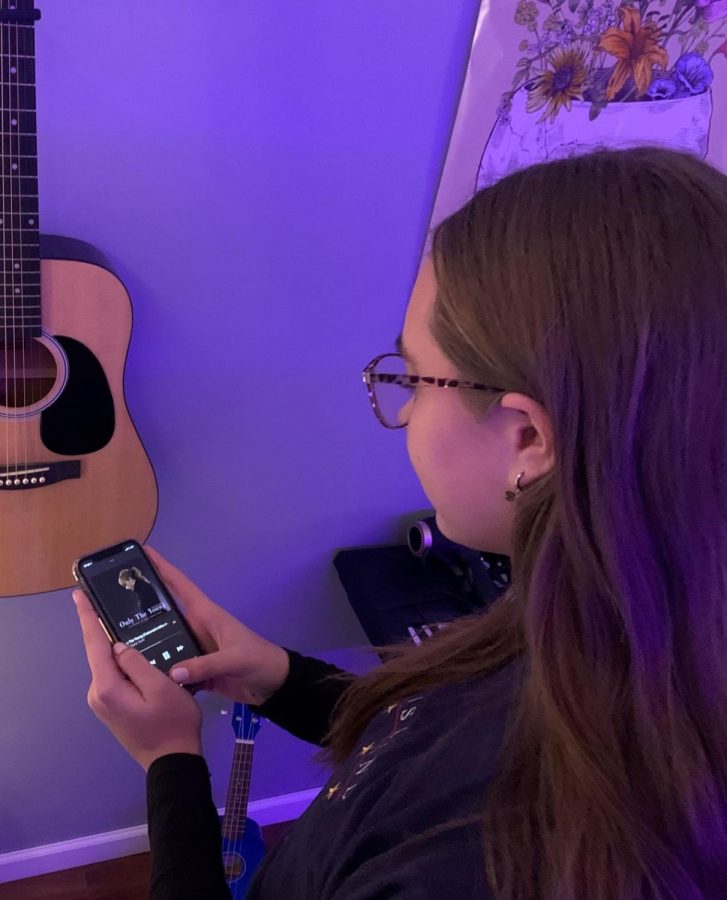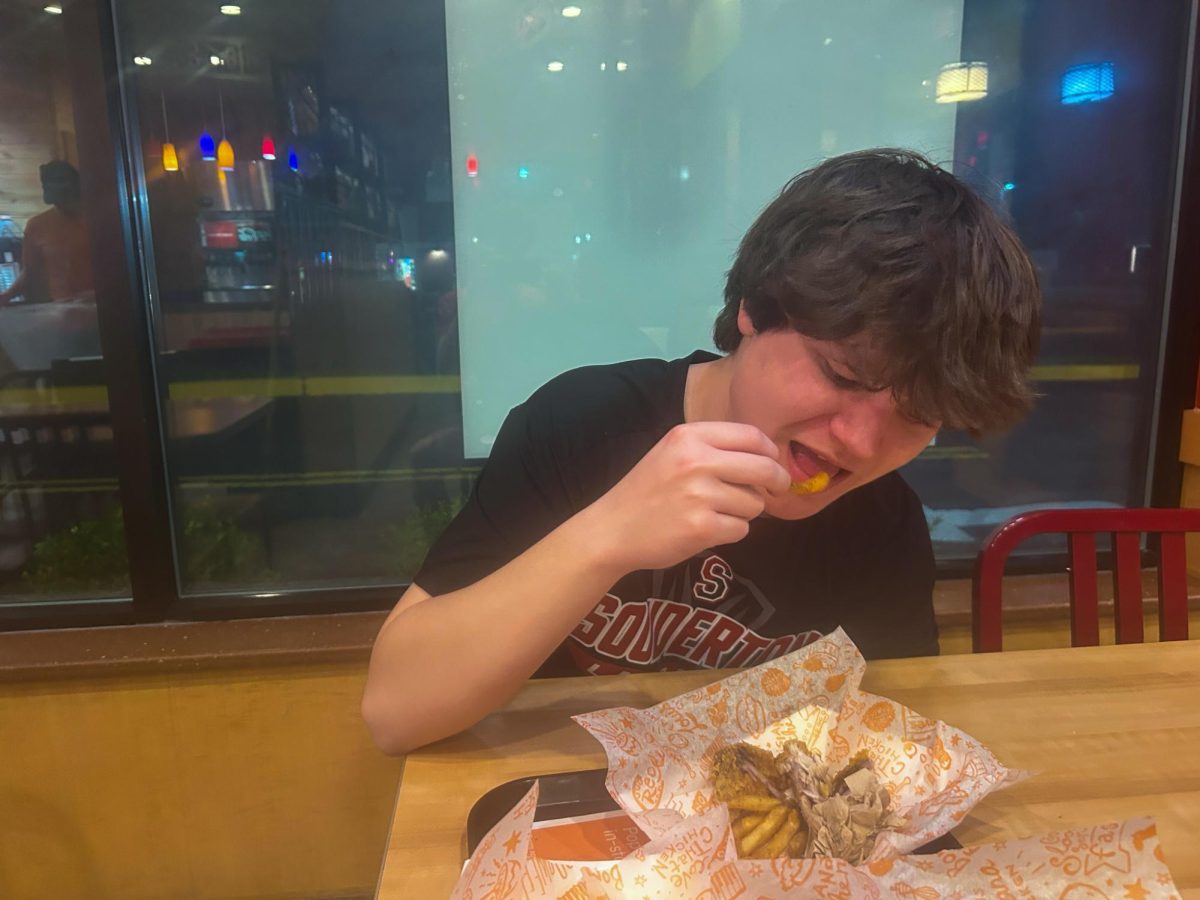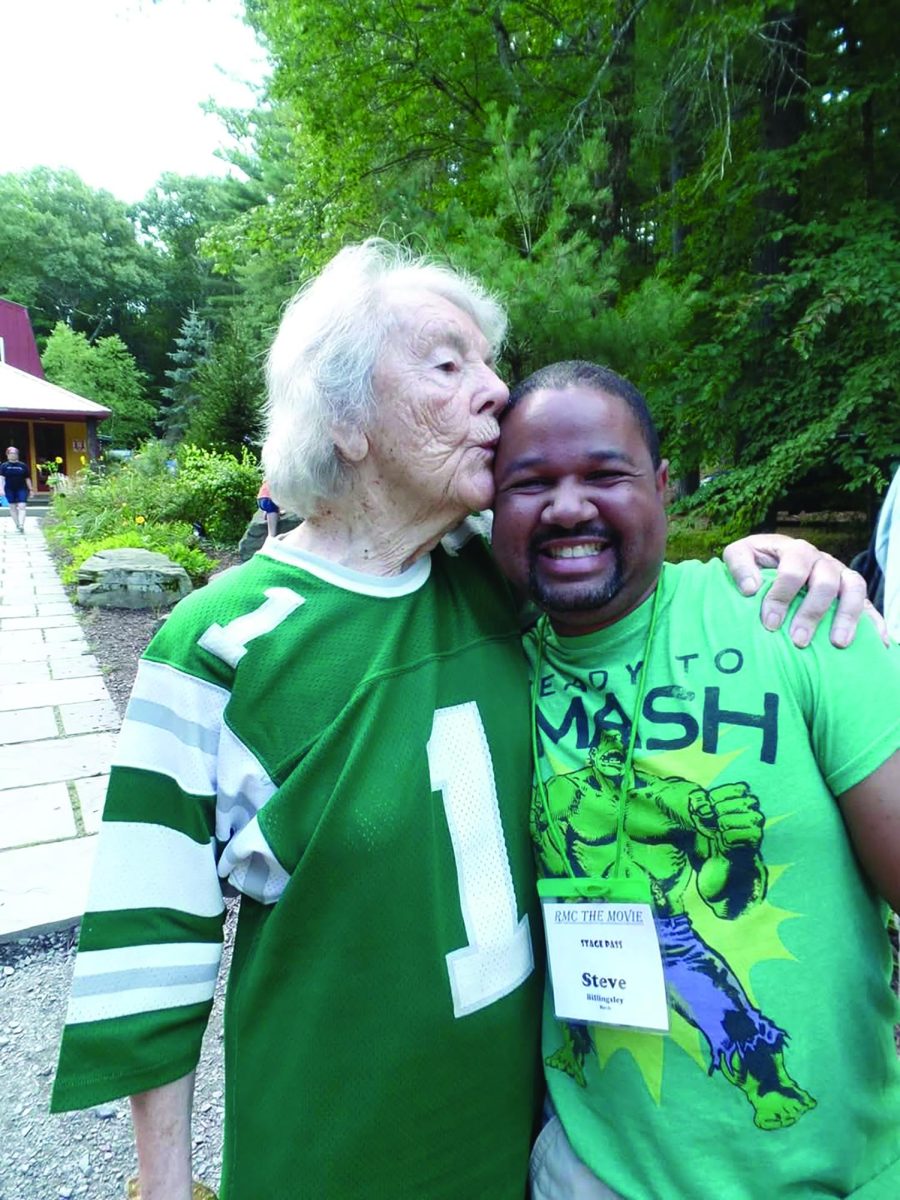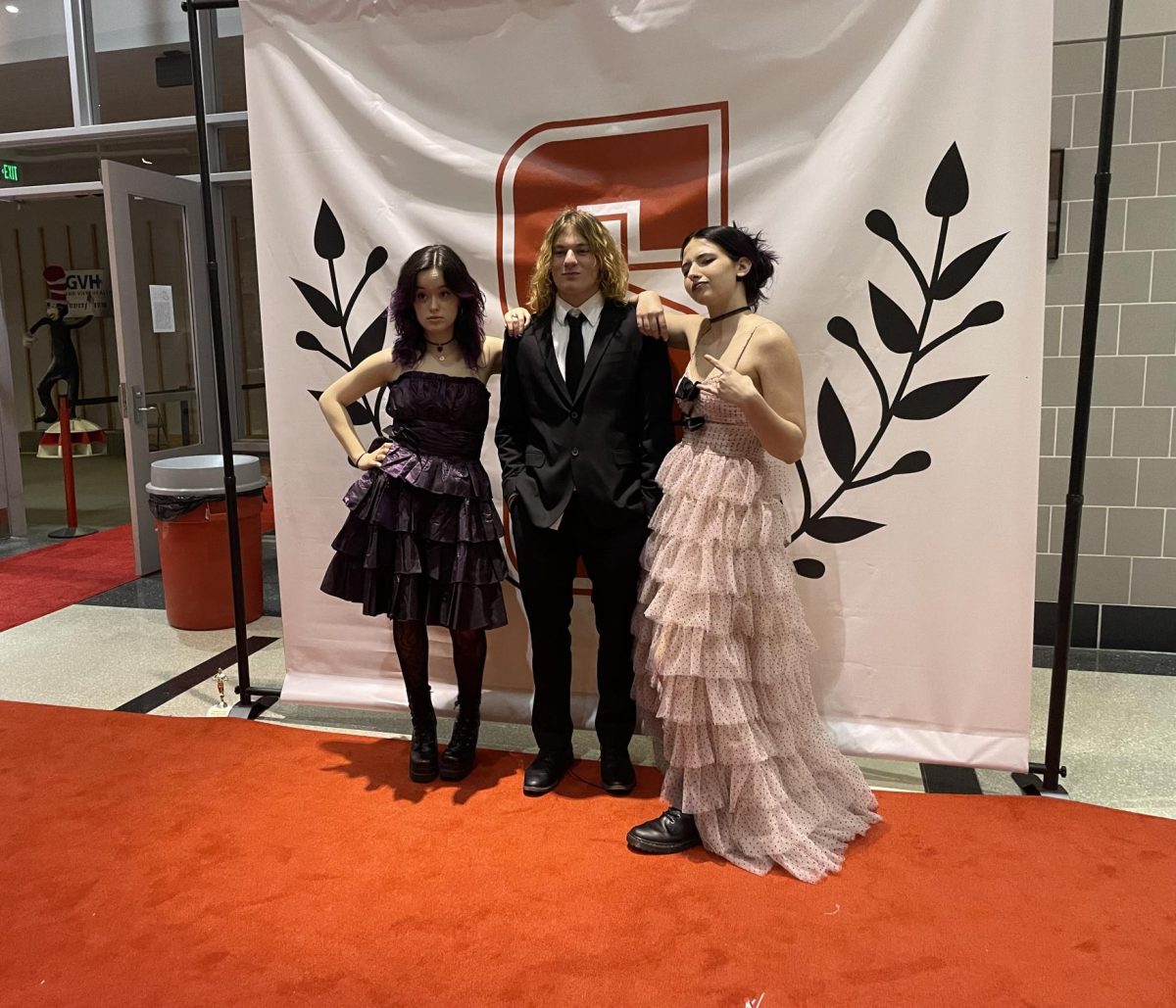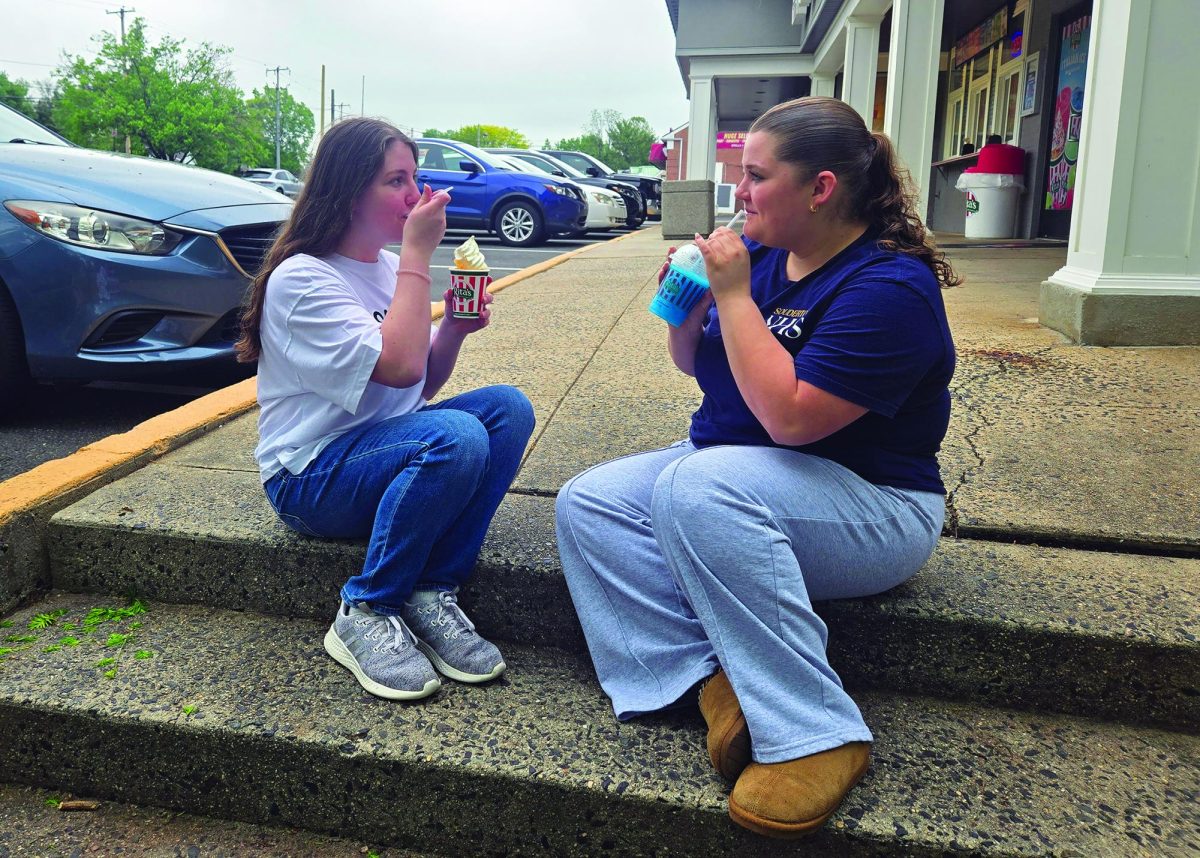By listening to the lyrics of songs with political undertones, people have been influenced and exposed to political expression through music. Artists throughout the years have released songs with lyrics about war, peace, revolution and topical political issues.
Many people think of love when they ponder what a song is about, but dating back generations, musical artists have written songs with political value. According to junior Anna Roman, these songs have changed over the years based on the political climate at the time.
“As time goes on, the issues are different that [artists are] talking about because of different political climates,” Roman said.
According to social studies teacher Breanne Dickerson, artists release these types of songs to raise awareness of political occurrences.
“Artists use these major events to convey their opinions to the public, whether they be positive or negative to bring light to the events,” Dickerson said.
Dickerson teaches about several songs released in the 1950s and their relation to the political change that occurred.
One of these songs is “Little Boxes” by Malvina Reynolds. The first verse references suburban homes that had just been built in Levittown, Ny. “Little boxes on the hillside, little boxes all the same.”
According to Dickerson, the song was written to illustrate suburbia in the 50s. “The reason why this song was created was to represent the suburban homes that were rapidly built post-World War II in Levittown,” Dickerson said.
Music teacher Rich Freda remembers listening to the Jimi Hendrix version of “All Along The Watchtower” (1968) and “Born In The USA” by Bruce Springsteen (1984) when he was younger. Both songs are about the Vietnam War and the social change in America during and after the war.
Additionally, Freda teaches a unit on political songs in the middle school’s general music class. The songs include “Big Yellow Taxi” by Joni Mitchell (1970), “We Shall Overcome” by Joan Baez (1970), and “The Times They Are a-Changin’” by Bob Dylan (1964).
According to Freda, these songs were a way for artists to express their opinions in a non-technological era.
“Back in the ‘60s and ‘70s, they didn’t have Twitter or Instagram. There was no way for common people to really get their opinions across,” Freda said. “These musicians were able to be the voice of millions of young people about trying to make the change that they wanted to see,” Freda said.
“Imagine” by John Lennon is a well-known song released in 1971 that touches on the subject of world peace. “Imagine there’s no countries, it isn’t hard to do, nothing to kill or die for and no religion too. Imagine all the people living life in peace…”
These lyrics hold power that has impacted how people see the world, according to Roman. “I think that it can really show you a different point of view and it can definitely shine some light on current issues,” Roman said.
According to Freda, political songs have changed drastically over time. At first, political songs were “simple tunes” in order to get people to memorize them and join the causes. “Eventually these songs became works of art,” Freda said.
As the years go by, more and more artists have begun to release political expressions in their music.
Recently, Taylor Swift has put out several political tunes including “You Need To Calm Down” (2019) and “Only The Young” (2020). Swift sings about LGBTQ+ oppression and the younger generations making progressive change in the songs.
According to sophomore Ally Lemon, the song “Only The Young” holds political importance for young people. “A lot of people think that young people shouldn’t get involved in politics, but [Swift] wrote the song in retaliation to that and to show that young people in our generation are the future,” Lemon said.
These modern songs reflect the current political climate, according to Lemon. “Only The Young” contains lyrics relevant to gun violence problems in the U.S.
“There have been a lot of school shootings especially over the past couple of years,” Lemon said. “Putting this topic in her song made it clear that kids do have to think about that, which they shouldn’t have to.”
Political music brings light to issues, influences listeners
With historical songs going back all the way to the Revolutionary War, artists have conveyed their political views through lyrics. These types of songs have brought relevance to U.S. political events and changes through generations.
Tuning in…Listening to Taylor Swift’s song “Only The Young,” sophomore Ally Lemon processes the politically charged lyrics. The song, released in 2020, highlights topics of elections, democracy, gun violence and the younger generations with politics.
0
More to Discover
About the Contributor
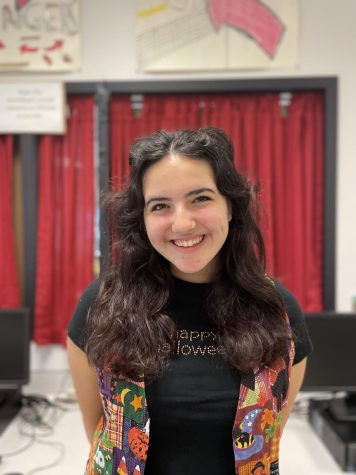
Sophie Rodrique, Co Editor In Chief

